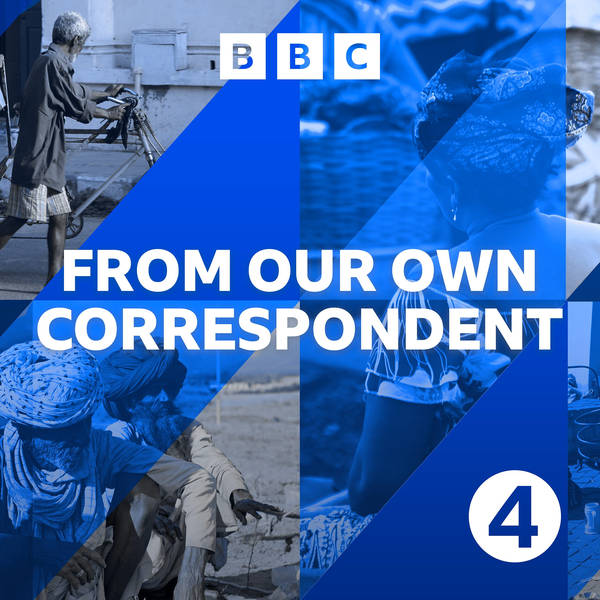
2022: A Year of Recovery?
What are you hoping for in the twelve months ahead? What might you be fearing? These are questions which we often ask ourselves at this time of year, and yet it is hard to imagine a year when they have felt quite so pressing. In this special, New Year’s Day edition of From Our Own Correspondent, we hear about sentiment both optimistic and pessimistic, and about the efforts people are making to rebuild after a year of loss. Plus there is a look at why many people seem to be optimistic, whatever the challenges ahead.
2021 saw terrible, weather-related destruction, which many blamed on climate change. In California, more than eight thousand major fires broke out, their number and intensity a marked increase on what is normally seen there. Justin Rowlatt witnessed the resulting devastation, but says that amidst the burned out ruins, people were still holding out hope of recovery and reconstruction.
There was plenty of destruction in 2021 that did not come from nature, war continuing to take its toll in many parts of the world. Ethiopia and Yemen were perhaps the worst examples, but there were also small-scale conflicts, like the insurgency in Myanmar. Then there were the conflicts which never really went away, like that between Israel and the Palestinians. An exchange of rocket fire with Gaza back in May, along with Israeli airstrikes, left more than two hundred dead, the overwhelming majority on the Palestinian side. When Tom Bateman went to Gaza, he met a woman trying to restart her life as a sculptor.
The Coronavirus has been described as offering a lesson in humility, a challenge to our belief in humanity’s power to control and manage the world around us. This tiny, sub-microscopic string of rogue DNA, has led to death on a scale most will not have experienced in their lifetime. At the same time though, vaccines and anti-viral drugs have been developed in response to Covid, which use new technologies that promise cures for other diseases in future. Rajini Vaidyanathan saw some of the worst of Covid, reporting from India where hundreds of thousands died, perhaps more than a million. But while off duty recently, she found herself struck by the effects of one individual death, in a place very familiar to her.
People often talk about climate change in terms of future trouble ahead: rising sea levels, and crops no longer able to thrive. In the Pacific island nation of Fiji, whole villages have already had to be evacuated, because of current weather conditions, and what that weather is expected to do in the years ahead. Many Fijians traditionally have a strong attachment to the land they live on, so moving from their homes presents a challenge that goes way beyond mere inconvenience. When Megha Mohan visited, she found local people trying hard to retain a sense of connection to their original homes.
Despite Covid, climate change, and all the other challenges which humanity faces, many remain optimistic that normal life can continue or be restored, or perhaps that something new, and better can emerge from the ashes of the old. In fact, according to Marnie Chesterton, most people are predisposed to have an optimistic outlook, and to believe there are solutions to the challenges we face.
